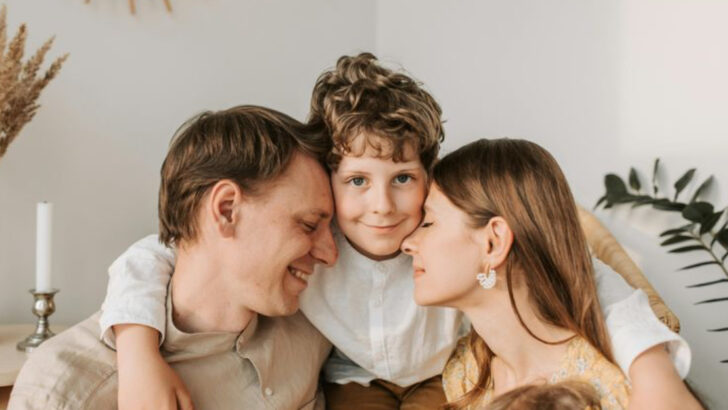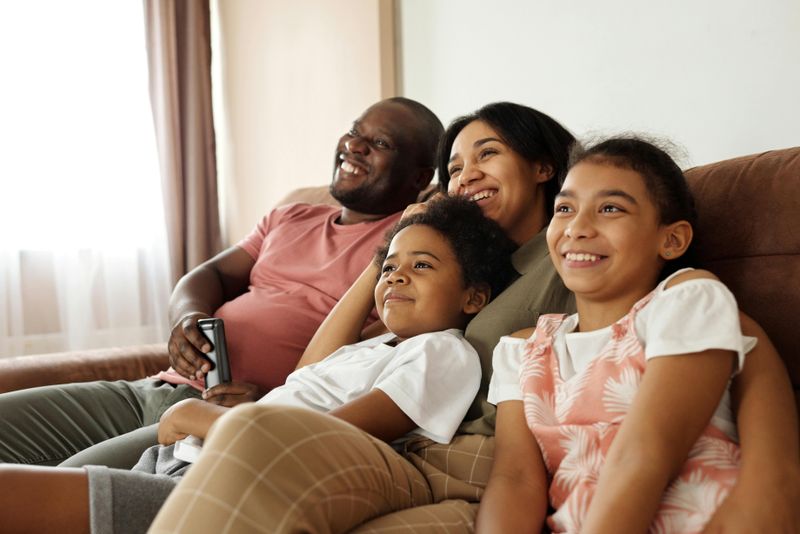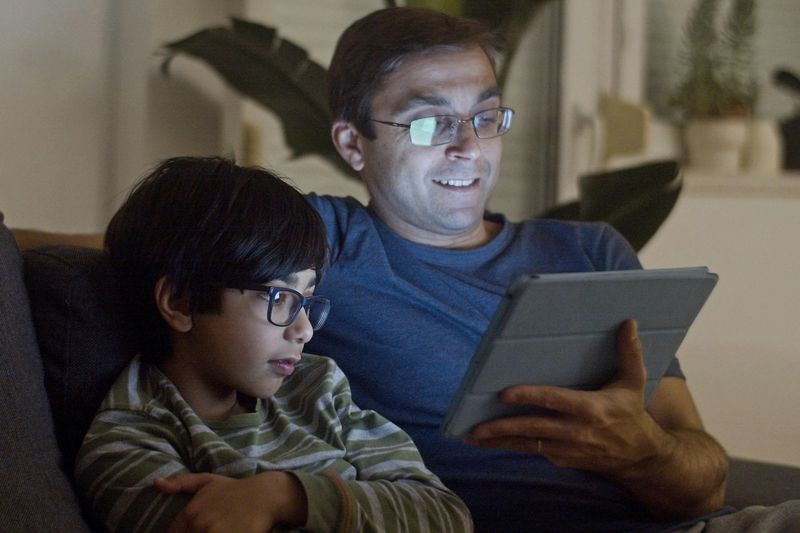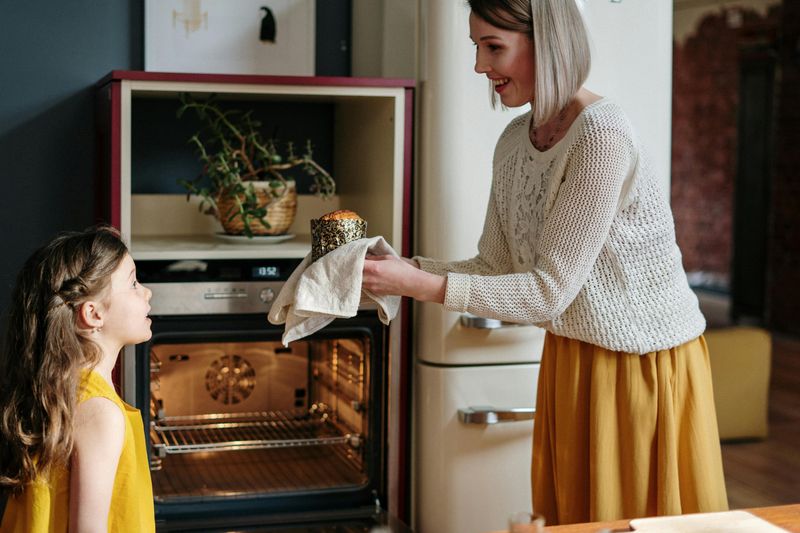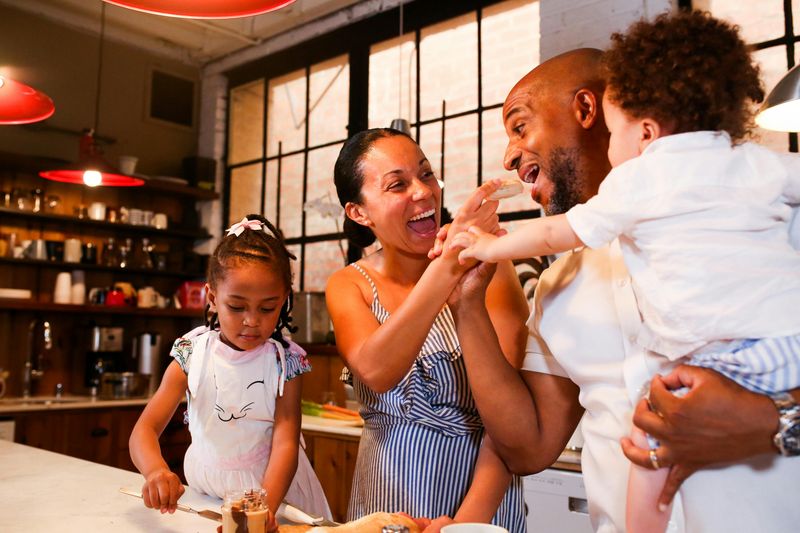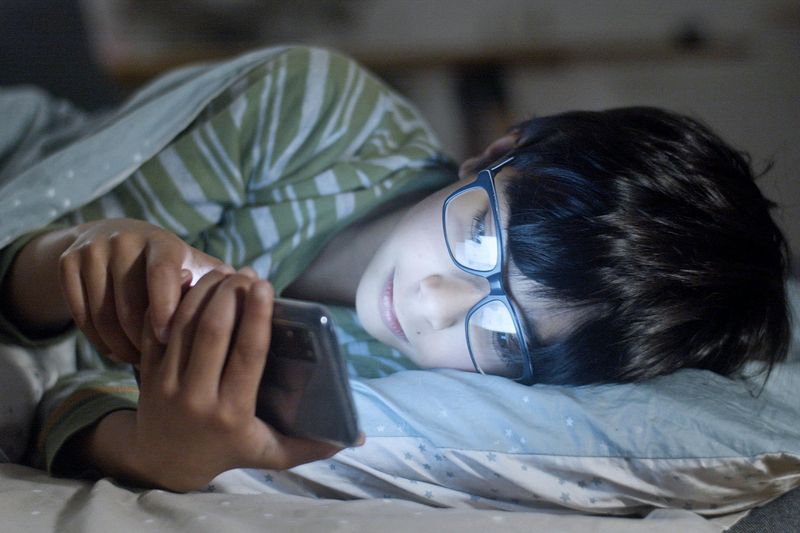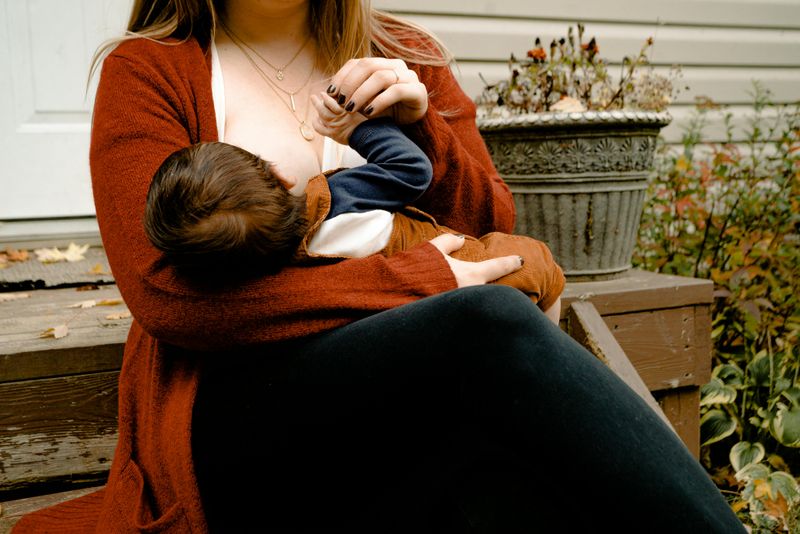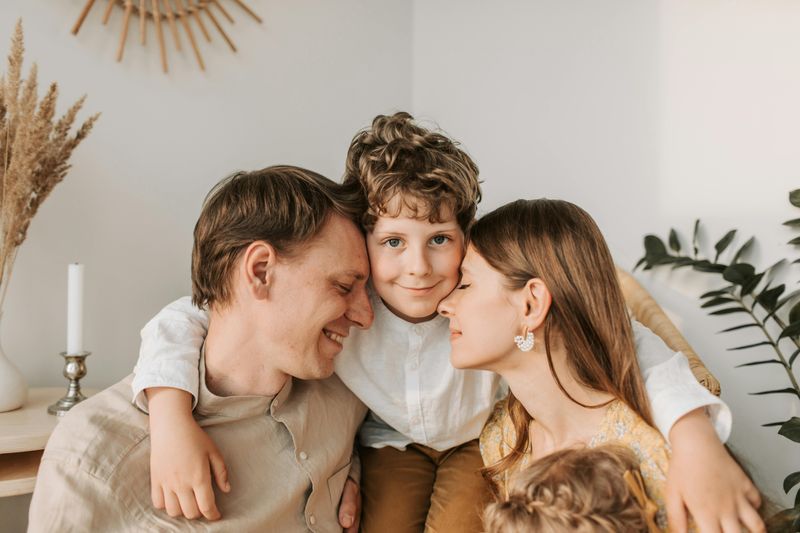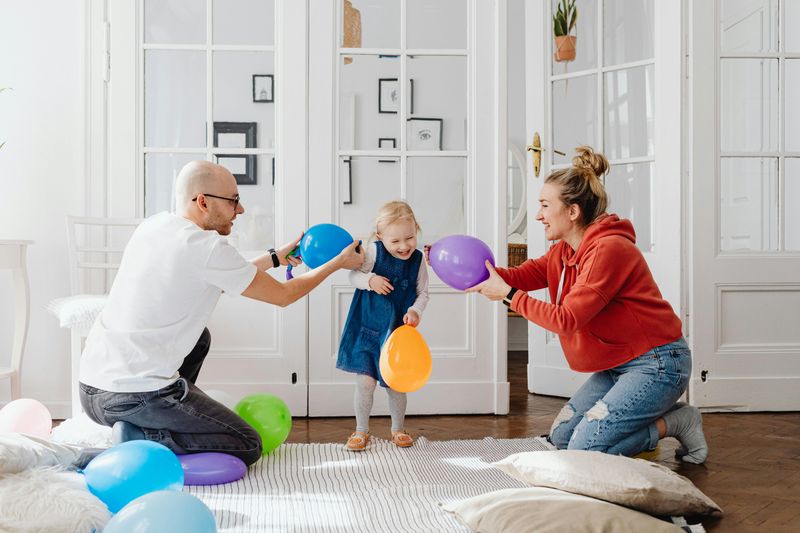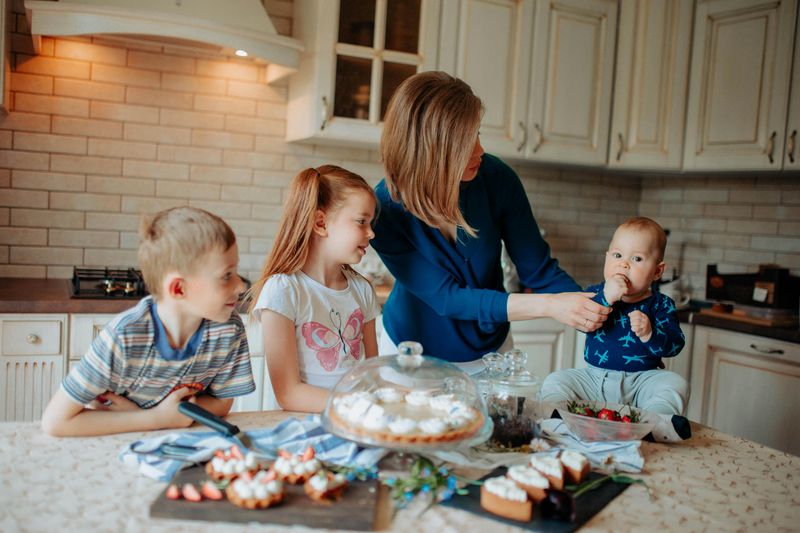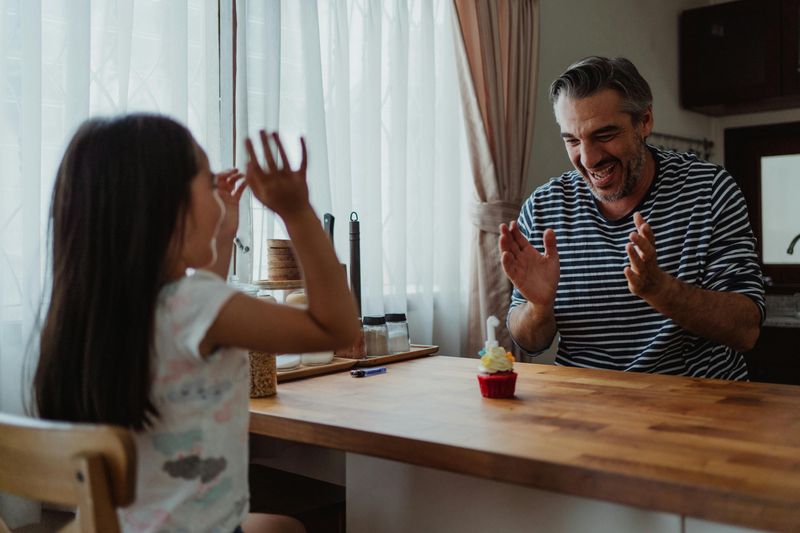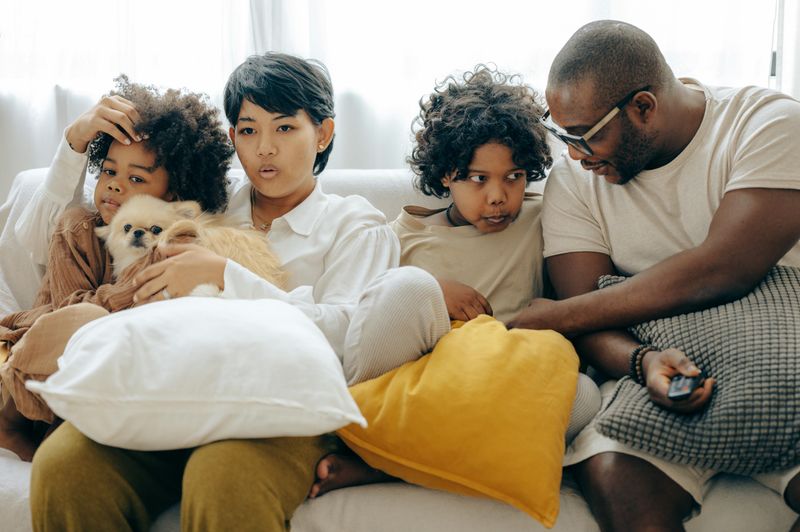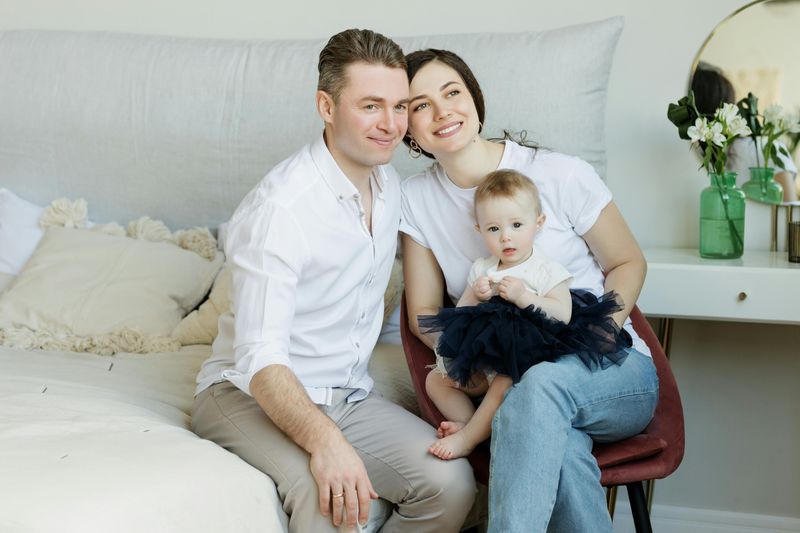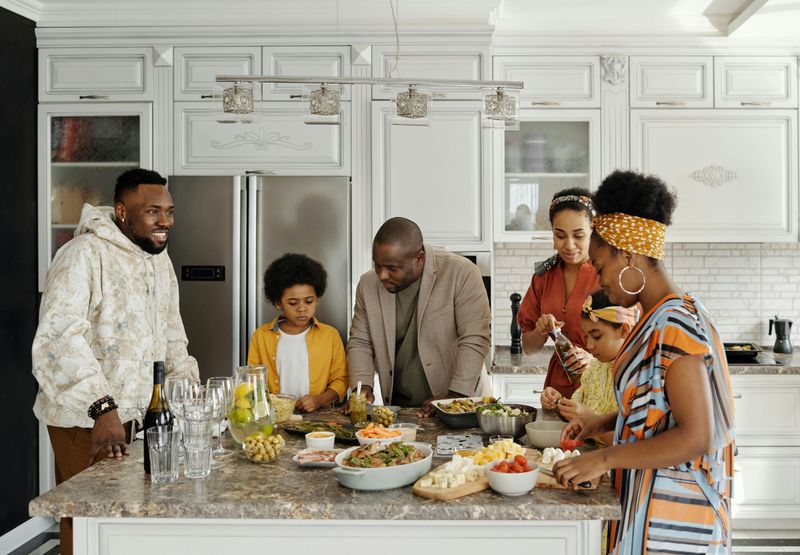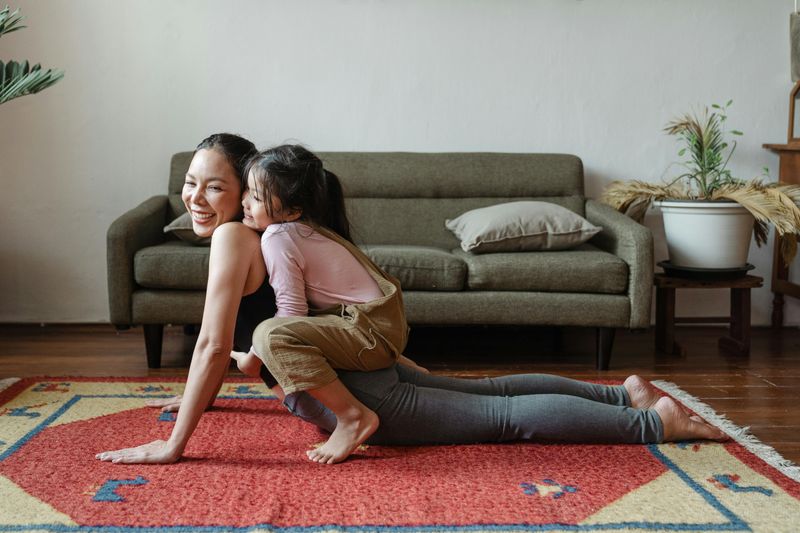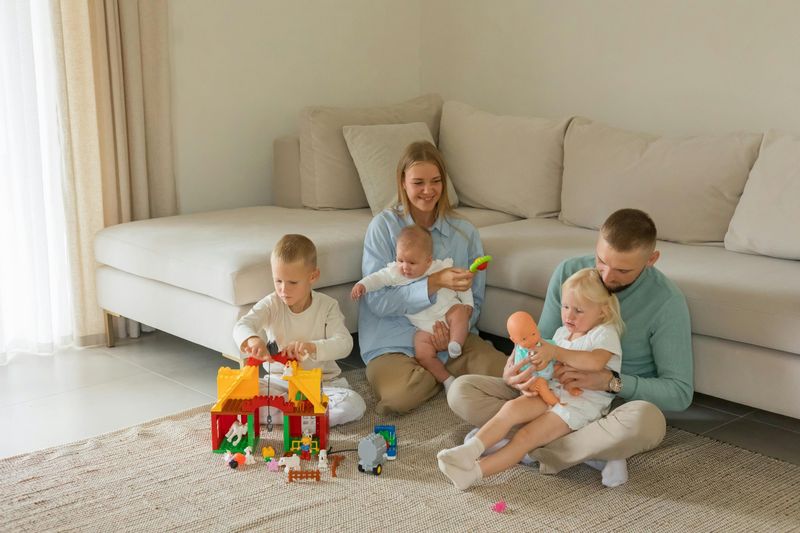I used to think perfect parents existed. You know the ones—always calm, organic snack–packing, screen-time–limiting superheroes who never lose their cool and somehow enjoy every second of playdough time.
Yeah… that fantasy crashed and burned somewhere between my toddler throwing a shoe at my face and me Googling “is cereal dinner?” for the third night in a row.
The truth? Perfect parenting is one giant myth—and it’s making us all feel like we’re failing. So let’s call out the nonsense, laugh at the chaos, and unlearn the unrealistic standards that are stressing us out.
Here are 30 myths about the “perfect parent”—and the honest, messy, real truths that prove being “good enough” is more than okay. In fact, it might just be exactly what your kid needs.
1. Good Parents Never Yell
Somewhere along the line, I bought into the idea that good parents never raise their voices. But let’s be real: life with kids gets loud. One time, my toddler thought it would be fun to redecorate the living room wall with her lunch. At that moment, my voice rose a few decibels.
Sure, yelling isn’t the ideal go-to, but sometimes it’s the quickest way to grab attention in the chaos. The key is not to let it become the norm and to apologize if we do go overboard. Let’s cut ourselves some slack and remember that a single shout doesn’t define our parenting. It’s how we handle the aftermath that counts.
2. Screen Time Ruins Kids
It’s easy to feel guilty about letting kids watch TV or play on tablets. We’ve all heard the warnings: screen time is a brain-melter. My son loves his educational apps, and while I’d love to say he’s always reading, sometimes the screen is my sanity saver.
In moderation, screens can be educational and even bring families together—hello, movie nights! The trick is to balance screen time with other activities and ensure what they’re watching is suitable. Instead of beating ourselves up, let’s recognize that in today’s world, screens are just part of life. They’re not the enemy if used wisely.
3. Perfect Parents Always Stick to Schedules
I once envied those families with color-coded calendars, where everyone knew exactly what to do and when. But life happens, and sometimes schedules go out the window—like the time we planned a park day and ended up with a living room fort instead.
While routines are helpful, flexibility is crucial. Kids thrive on predictability, yes, but they also need to learn how to adapt when things don’t go as planned. Let’s embrace spontaneity and remember that it’s okay if the day doesn’t unfold perfectly. Sometimes the best memories come from unplanned moments.
4. Loving Parents Never Bribe
I used to believe that only parents who couldn’t control their kids resorted to bribery. Then I had one of my own. Picture this: we’re in the middle of a grocery store, my preschooler is melting down, and I’m desperate. Out comes the emergency snack.
Bribes, or as I prefer to call them, incentives, can be lifesavers in sticky situations. The key is not to rely on them constantly—use them sparingly, like a secret weapon. Let’s not kid ourselves; sometimes a little negotiation keeps the peace and helps everyone get out of the store with sanity intact.
5. Good Parents Have Well-behaved Kids
Before kids, I thought good parents had kids who always listened and behaved. Then reality hit: kids will be kids. My living room often resembles a small tornado’s path, but it’s normal.
Children are learning and testing boundaries; it’s part of their development. Instead of seeing misbehavior as a failure, we can view it as a teaching opportunity. Guiding them through these moments with love and patience is what truly matters. Remember, even the most well-behaved kids have their moments, and that’s okay—it’s all part of growing up.
6. Perfect Parents Are Always Patient
Ah, the myth of endless patience. I once believed that perfect parents never lost their cool, always speaking in gentle tones. That was until I found myself refereeing a sibling squabble over who gets the last cookie.
Patience is a virtue, but it’s not infinite. We all have breaking points. The important part is not about never losing patience, but about how we recover and apologize when we do. It’s okay to need a moment to breathe and regroup. Our kids learn from us, not just when we’re calm, but also when we show them how to handle emotions.
7. Organic Food is a Must
For a while, I was convinced that my parenting badge depended on buying strictly organic. But have you seen the prices? My wallet screamed louder than my kids in the candy aisle.
Choosing organic is great if it fits the budget, but it’s not the only way to ensure healthy meals. Fresh, varied, and balanced diets are more crucial than labels. Let’s focus on feeding our kids nutritious food without the added pressure. After all, a carrot is a carrot, whether it’s organic or not. It’s about making wise choices that work for your family.
8. Successful Parents Have Perfect Homes
Walking into some homes, you’d think they hired a full-time cleaner. At first, I felt pressure to maintain a pristine living space. Then I realized: lived-in means loved-in.
Our homes won’t always be ready for a magazine spread, and that’s alright. Toys on the floor, dishes in the sink—these are signs of life. What matters is creating a space that feels safe and welcoming, not one that’s flawlessly tidy. So, let’s embrace the mess and focus on the laughter and love within those walls.
9. Perfect Parents Never Use Screen Time as a Babysitter
The guilt of using screens as a babysitter is real. But truthfully? There are times when a few peaceful moments can only be bought with a favorite show.
When deadlines loom or when you just need a breather, screens can be a tool. The trick is to ensure what they’re watching is age-appropriate and to balance screen time with outdoor play and other activities. In moderation, using screen time strategically isn’t a failure; it’s a modern parenting tool. Let’s be gentle with ourselves and recognize that we’re doing our best.
10. All Good Parents Breastfeed
Breast is best, they said. But here’s the truth: fed is best. I planned to breastfeed exclusively, but it wasn’t to be. After struggling, I made peace with formula.
Every family’s journey is different, and there shouldn’t be guilt associated with how we choose to feed our babies. What’s important is that they’re nourished and loved. Whether it’s breast, bottle, or a combination, let’s support each other and remember that each choice is valid. It’s the love and care we provide that truly matters, not the method.
11. Perfect Parents Have All the Answers
I once thought that becoming a parent meant knowing all the answers. Then my kid asked why the sky is blue, and I was stumped.
Being a parent doesn’t mean we’re walking encyclopedias. It’s okay not to have all the answers and to learn alongside our children. Admitting we don’t know something teaches them humility and the value of curiosity. Let’s celebrate the journey of discovery together, rather than pretending to be infallible. It’s about growing and learning with them, not ahead of them.
12. Good Parents Never Make Mistakes
Mistakes? I’ve made a few. Like the time I sent my kid to school in pajamas for a costume day that wasn’t happening.
The myth of perfection shames us into believing we can’t falter. But guess what? Mistakes are part of the package. They offer us growth and teach our kids resilience and forgiveness. It’s more important to handle mistakes with grace and to show kids how to apologize. Our blunders don’t define us; it’s how we bounce back that matters.
13. Perfect Parents Have Perfect Kids
Perfect children? They’re like unicorns—fantastical and non-existent. My kids have quirks, moods, and moments that make me question my sanity.
Believing in perfect kids sets us all up for disappointment. Each child is wonderfully unique. Embracing their individuality and celebrating their victories, big or small, is what counts. Let’s shift our focus from perfection to progress and appreciate them for who they are, not who they’re pressured to be. After all, the quirks often become the most cherished memories.
14. Good Parents Never Use “Because I Said So”
I vowed never to use “because I said so”—until I had kids. Explaining everything is noble, but sometimes, it’s just the quickest way to end a debate.
Sure, explaining the reasoning behind things is ideal, but there are moments when the endless “whys” need a shortcut. Using “because I said so” sparingly isn’t a parenting fail; it’s a sanity preserver. Let’s aim for balance, providing explanations when it’s feasible, and offering boundaries when it’s needed. After all, parenting isn’t about perfection; it’s about navigating the moment.
15. Perfect Parents Have a Work-Life Balance
Work-life balance? Sounds dreamy, doesn’t it? Reality check: it’s more like a see-saw. Some days work tips the scale, other days, family does.
Instead of chasing a mythical balance, I’ve learned to focus on what needs my attention most at the moment. Prioritizing doesn’t mean failing at balance; it means adapting. Let’s acknowledge that juggling roles is challenging and give ourselves grace. It’s about being present for what matters now, not splitting ourselves perfectly down the middle. Imperfect is perfectly human.
16. All Perfect Parents Do Extracurriculars
I used to think that signing my kids up for all the activities made me a better parent. Until I found myself living in my car, shuttling from ballet to soccer.
Extracurriculars are wonderful for development, but they’re not the only way to enrich a child’s life. Children also thrive with downtime, free play, and simple family interactions. Let’s focus on what truly fits our family’s dynamic rather than ticking boxes. It’s okay to have weekends with nothing planned, and to enjoy the simple joy of just being together.
17. Good Parents Never Show Emotion
For a while, I thought good parenting meant hiding my emotions and always showing a calm exterior. But life isn’t always calm, and neither am I.
Sharing emotions teaches kids it’s okay to feel. It builds empathy and understanding. Showing anger, sadness, or joy validates that they can express themselves too. Let’s embrace being real with our emotions instead of bottling them up. It’s in these moments our kids learn the richness of human experience. Being authentic is far better than being a stoic statue.
18. Perfect Parents Know What’s Best
I used to think a perfect parent always knew what was best. Then, my child suggested something brilliant I hadn’t considered.
Involving kids in decisions teaches them responsibility and independence. It’s okay to admit we don’t have all the answers. Our kids offer fresh perspectives that can enhance family life. Let’s encourage their input and grow together. It’s not a sign of weakness to listen; it’s a sign of strength. Parenting is a partnership, not a dictatorship, and it’s enriched by diverse ideas.
19. Good Parents Never Feel Overwhelmed
Overwhelmed? Absolutely. There are days when the to-do list seems endless, and I feel like I’m juggling too many balls.
Feeling overwhelmed doesn’t mean we’re failing; it means we’re human. Let’s normalize asking for help and taking breaks when needed. We can’t pour from an empty cup, and self-care is crucial. It’s important to recognize that feeling overwhelmed is part of the journey and doesn’t diminish our love or commitment. It’s okay to lean on others and remind ourselves that we’re doing enough.
20. Perfect Parents Have Perfect Marriages
In the quest for perfect parenting, I thought it meant having a flawless marriage too. Reality check: every relationship has its ups and downs.
Perfection isn’t the goal; connection is. Strengthening a marriage amidst parenting challenges requires communication, patience, and teamwork. It’s okay to have disagreements and to work through them. Let’s cherish the imperfect journey we’re on and support each other. It’s about evolving together and finding joy in the highs and understanding in the lows. Love is about embracing imperfections, together.
21. Good Parents Never Say No
Saying no felt like denying my child the world. But if I’ve learned anything, it’s that boundaries are essential.
“No” teaches kids respect, limits, and patience. It’s a crucial part of parenting, not an act of withholding love. Children need to understand they can’t have everything instantly. Let’s embrace saying no as a tool for teaching valuable life lessons. It’s not about denying them; it’s about guiding them. Boundaries help shape their understanding of the world and help them grow into considerate individuals.
22. Perfect Parents Have Perfect Family Photos
Ever seen those flawless family portraits on social media? I used to stress about getting that perfect shot, but my kids had other ideas—like sticking out their tongues.
Perfect photos don’t reflect reality; they’re a moment in time, often orchestrated. Candid moments capture true family essence. Let’s cherish the imperfectly perfect snaps where personality shines through. It’s about the memories we create, not the staged image. Each silly face is a testament to the joy and love we share, and that’s priceless.
23. Good Parents Are Universally Loved by Their Kids
I dreamed of being the universally adored parent. But then my kids entered their teenage years, and eye-rolls became a staple.
Children go through phases, and their opinions of us fluctuate. The measure of good parenting isn’t in constant adoration, but in the love and security we provide. Let’s be patient and present, knowing they’ll come around. It’s not about being their best friend; it’s about being their unwavering support. The love may ebb and flow outwardly, but it’s always there, deeply rooted.
24. Perfect Parents Don’t Let Kids Get Bored
I used to fill every moment of my kids’ schedules to prevent boredom. Turns out, boredom is a gift.
In those unstructured moments, creativity blossoms. Kids invent games, build worlds, and solve problems. Let’s allow them to experience boredom and discover their imagination. It’s not a parenting failure; it’s a stepping stone to creativity. By embracing boredom, we encourage independence and resourcefulness. It’s about giving them the space to explore, learn, and grow on their terms.
25. Good Parents Always Celebrate Every Milestone
Every milestone is precious, and I used to think each one required a grand celebration. But honestly, it’s the small victories that often go unnoticed.
While birthdays and graduations are significant, day-to-day achievements deserve recognition too. Let’s celebrate the everyday moments—when they try something new or show kindness. It’s in these instances that we teach gratitude and appreciation. It’s not about grand gestures; it’s about meaningful acknowledgments. Our children learn that every step forward, no matter how small, is worth celebrating.
26. Perfect Parents Have Well-Mannered Kids All the Time
Well-mannered kids all the time? Sure, and I’m a unicorn. Kids are unpredictable, and their manners sometimes go out the window, especially at the dinner table.
Instead of expecting perfection, let’s focus on teaching them over time. Manners are learned, practiced, and occasionally forgotten. It’s alright if they slip up—what matters is guiding them with patience. Let’s choose teaching moments over frustration. It’s about guiding them with love and understanding, knowing they’re on a journey of learning.
27. Good Parents Never Need a Break
Needing a break isn’t a sign of weakness; it’s a necessity. Parenting is fulfilling, yet demanding, and it’s okay to need a moment to recharge.
Taking time for ourselves rejuvenates and enables us to be more present. Let’s shatter the myth that constant availability defines good parenting. It’s about quality, not quantity. Embracing self-care replenishes our energy and allows us to show up as our best selves. Remember, a refreshed parent is a more patient and loving one.
28. Perfect Parents Have Perfectly Planned Meals
In a world of Pinterest-perfect meals, I felt pressure to plan every dinner. But sometimes, takeout is the best solution. What matters is sharing meals together, not the complexity of the dish. Let’s embrace the mix of home-cooked and takeout, knowing that mealtime is about connection. Whether it’s a gourmet meal or pizza night, it’s the time spent together that counts. Let’s savor the laughter and stories shared around the table, focusing on creating memories, not perfection.
29. Good Parents Never Compare Their Kids
I used to think comparing my kids meant I wasn’t valuing their individuality. But it’s human nature to notice differences.
The key is to appreciate each child’s uniqueness and encourage their strengths. Let’s focus on fostering their individual talents and passions instead of comparing them. It’s about guiding them to be the best version of themselves, not a replica of their sibling or the kid next door. Celebrating their differences enriches family dynamics and builds their self-confidence.
30. Perfect Parents Never Ask for Help
Asking for help felt like admitting defeat. But I’ve learned it takes a village, and reaching out makes us stronger.
Building a support network offers fresh perspectives, advice, and much-needed encouragement. It’s not about having all the answers alone; it’s about growing together as a community. Let’s redefine strength as the ability to seek help when needed. It’s in these connections that we find reassurance and camaraderie. We’re all in this together, navigating the beautiful chaos of parenting with a little help from our friends.

